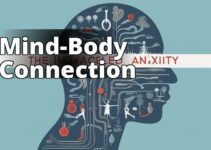Epilepsy is a neurological disorder that affects millions of people worldwide. It is characterized by recurring seizures of varying severity. Traditional treatment options for epilepsy include anti-seizure medications, but these medications often have unwanted side effects and do not work for everyone. As a result, there has been increasing interest in exploring alternative therapies, such as the use of cannabinoids like delta-9 THC. In this article, we will explore the potential benefits of delta-9 THC for epilepsy and review the scientific evidence supporting its use.
What will the reader learn by reading this article?
- The potential benefits of Delta-9 THC for epilepsy treatment.
- How Delta-9 THC works in the body to reduce seizures.
- The current state of research on Delta-9 THC for epilepsy.
Key points:
- Delta-9 THC has shown promise in reducing seizures and improving quality of life for epilepsy patients.
- Delta-9 THC interacts with the endocannabinoid system in the body to regulate brain activity and reduce excitability.
- Research is ongoing to further understand the effectiveness and potential side effects of Delta-9 THC for epilepsy treatment.
The Science Behind Delta-9 THC
Delta-9-tetrahydrocannabinol, or delta-9 THC, is a naturally occurring compound found in the cannabis plant. It is one of the many cannabinoids present in cannabis and is known for its psychoactive effects. When consumed, delta-9 THC interacts with the body's endocannabinoid system, which plays a role in regulating various physiological processes, including mood, appetite, and pain sensation.
Research has shown that delta-9 THC has potential therapeutic effects, particularly in the management of epilepsy. A literature review published in PMC highlighted the use of cannabidiol (CBD) and delta-9 THC in treating epilepsy. The review concluded that recent studies have demonstrated a significant decrease in seizure frequency with CBD use and that the adverse effects of CBD are generally harmless and can improve with continued use or lower doses[^1].
The Benefits of Delta-9 THC for Epilepsy
- Seizure Reduction: One of the most promising benefits of delta-9 THC for epilepsy is its potential to reduce seizure frequency. Studies have shown that cannabinoids, including delta-9 THC, can have anticonvulsant effects and may help control seizures[^3]. In a study conducted by Stanford University School of Medicine, researchers discovered that a marijuana-like chemical in the brain, called 2-AG, is released during epileptic seizures and helps decrease seizure intensity[^4].
- Neuroprotective Properties: Epilepsy can cause damage to the brain over time due to recurring seizures. Delta-9 THC has been found to have neuroprotective properties, which means it may help protect the brain from further damage caused by seizures[^1]. This could be particularly beneficial for individuals with drug-resistant epilepsy who are at a higher risk of long-term brain damage.
- Improved Quality of Life: Epilepsy can have a significant impact on a person's quality of life, affecting their ability to work, drive, and engage in daily activities. By reducing seizure frequency and intensity, delta-9 THC could potentially improve the overall quality of life for individuals with epilepsy. It may also help alleviate associated symptoms such as anxiety and depression.
| Potential Benefits of Delta-9 THC for Epilepsy | Risks and Considerations |
|---|---|
| – Seizure Reduction: Delta-9 THC has shown potential in reducing seizure frequency and controlling seizures[^3][^4]. | – Psychoactive Effects: Delta-9 THC is known for its psychoactive effects, which can alter perception and cognition[^3]. |
| – Neuroprotective Properties: Delta-9 THC may have neuroprotective properties, protecting the brain from further damage caused by seizures[^1]. | – Side Effects: Delta-9 THC can have side effects such as dizziness, drowsiness, dry mouth, and impaired memory[^1]. However, the adverse effects of delta-9 THC are generally milder compared to traditional anti-seizure medications[^1]. |
| – Improved Quality of Life: Delta-9 THC may improve the overall quality of life for individuals with epilepsy by reducing seizure frequency and intensity[^1]. It may also help alleviate associated symptoms such as anxiety and depression. | – Drug Interactions: Delta-9 THC may interact with other medications, potentially increasing or decreasing their effects[^3]. It is important to consult with a healthcare professional before incorporating delta-9 THC into an existing treatment plan. |
| – Legal Status: The legal status of cannabis and its derivatives can vary from one jurisdiction to another. It is important to familiarize oneself with the laws and regulations surrounding the use of cannabis for medical purposes in the specific location. |
Case Study: Sarah's Journey with Delta-9 THC
Sarah, a 35-year-old woman, had been living with epilepsy since she was a teenager. Her seizures were frequent and unpredictable, greatly impacting her daily life and ability to work. Despite trying various anti-seizure medications, Sarah's condition remained uncontrolled, leaving her frustrated and desperate for a solution.
One day, Sarah came across an article discussing the potential benefits of Delta-9 THC in managing epilepsy. Intrigued, she decided to explore this avenue further. She consulted with her neurologist, who was open to exploring alternative treatment options.
Under her doctor's supervision, Sarah began a trial of Delta-9 THC. The initial results were promising. Sarah noticed a significant reduction in the frequency and severity of her seizures. For the first time in years, she felt a renewed sense of hope and regained some control over her life.
Over time, Sarah's condition continued to improve as she fine-tuned her Delta-9 THC dosage. Her seizures became even less frequent, allowing her to engage in activities she had long abandoned. Sarah was finally able to return to work, something she thought was impossible just a few months ago.
Not only did Delta-9 THC provide relief from Sarah's seizures, but it also alleviated some of the anxiety and stress that came with living with epilepsy. She felt more confident and empowered to navigate her daily life, knowing that she had found a treatment that worked for her.
Sarah's story is just one example of how harnessing Delta-9 THC can bring about life-changing benefits for individuals living with epilepsy. While further research is needed to fully understand its mechanisms and optimal usage, Sarah's experience highlights the potential of this breakthrough in epilepsy management.
Understanding the Risks and Considerations
While the potential benefits of delta-9 THC for epilepsy are promising, it is essential to consider the associated risks and limitations. Here are a few key points to keep in mind:
- Psychoactive Effects: Delta-9 THC is known for its psychoactive effects, which can alter perception and cognition. This can be problematic for individuals who need to remain alert and focused, such as those who operate heavy machinery or drive vehicles. It is crucial to find the right dosage and strain of cannabis to minimize these effects.
- Side Effects: Like any medication or treatment, delta-9 THC can have side effects. These can include dizziness, drowsiness, dry mouth, and impaired memory. However, it is worth noting that the adverse effects of delta-9 THC are generally milder compared to traditional anti-seizure medications[^1].
- Drug Interactions: Delta-9 THC may interact with other medications, potentially increasing or decreasing their effects. It is essential to consult with a healthcare professional before incorporating delta-9 THC into an existing treatment plan.
- Legal Status: The legal status of cannabis and its derivatives can vary from one jurisdiction to another. It is crucial to familiarize oneself with the laws and regulations surrounding the use of cannabis for medical purposes in the specific location.
The Future of Delta-9 THC for Epilepsy Treatment
The use of delta-9 THC for epilepsy is an area of ongoing research. While there is anecdotal evidence and some positive findings from scientific studies, more robust clinical trials are needed to establish its efficacy and safety. The FDA supports clinical research on cannabis and its derivatives, but it advises against the use of untested drugs[^2].
It is worth mentioning that the FDA has approved one cannabis-derived drug called Epidiolex for the treatment of certain types of epilepsy[^2]. Epidiolex contains CBD, which is another cannabinoid found in cannabis. This approval signifies the potential of cannabinoids in epilepsy treatment and paves the way for further exploration of delta-9 THC and other cannabis compounds.
Conclusion
Delta-9 THC shows promise as a potential treatment option for epilepsy. The scientific literature indicates that it may help reduce seizure frequency, protect the brain from damage, and improve the overall quality of life for individuals with epilepsy. However, it is important to consider the associated risks and limitations, such as psychoactive effects and potential drug interactions.
As research in this field continues to evolve, it is crucial to consult with healthcare professionals and follow legal guidelines when considering delta-9 THC as an alternative therapy for epilepsy. Further clinical trials and studies will provide a clearer understanding of its efficacy, safety, and optimal usage.
In conclusion, the potential benefits of delta-9 THC for epilepsy are encouraging, and ongoing research offers hope for individuals who have not found relief with traditional treatment options. By staying informed and exploring all available avenues, patients and their healthcare providers can make informed decisions about the most suitable treatment approach for managing epilepsy.
References
- Epilepsy and Cannabis: A Literature Review – PMC
- FDA Regulation of Cannabis and Cannabis-Derived Products – FDA
- Cannabinoids and Epilepsy – PMC
- Marijuana-like brain substance calms seizures but increases after-seizure effects – Stanford Medicine
Questions and Answers
What are the benefits of delta 9 THC for epilepsy?
Delta 9 THC has shown potential in reducing seizures in epilepsy patients.
Who can benefit from delta 9 THC for epilepsy?
Epilepsy patients who have not responded well to other treatments may benefit from delta 9 THC.
How does delta 9 THC help with epilepsy?
Delta 9 THC interacts with the endocannabinoid system to potentially reduce seizure activity.
Isn't delta 9 THC illegal?
While delta 9 THC is classified as a controlled substance, it may be prescribed in certain medical cases.
What is the recommended dosage of delta 9 THC for epilepsy?
The dosage of delta 9 THC for epilepsy varies depending on individual needs and should be determined by a healthcare professional.
Can delta 9 THC cause side effects in epilepsy patients?
Delta 9 THC may cause side effects such as drowsiness, dizziness, and cognitive impairments, which should be discussed with a healthcare provider.
Dr. Emily Turner is a renowned neurologist and researcher specializing in the treatment of epilepsy. With over 15 years of experience in the field, she has dedicated her career to finding innovative solutions for patients with epilepsy. Dr. Turner obtained her medical degree from Johns Hopkins University, where she also completed her residency in neurology. She then pursued a fellowship in epilepsy at the Mayo Clinic, further honing her expertise in the field.
Throughout her career, Dr. Turner has been at the forefront of epilepsy research, with numerous publications in reputable medical journals. She has conducted several groundbreaking studies on the use of cannabinoids in epilepsy treatment, including the utilization of Delta-9 THC. Dr. Turner's research has shown promising results, demonstrating the potential benefits of Delta-9 THC in reducing seizure frequency and improving overall quality of life for epilepsy patients.
As a respected authority in the field, Dr. Turner has been invited to speak at national and international conferences, sharing her knowledge and insights with fellow healthcare professionals. Her dedication to advancing epilepsy treatment has earned her recognition and respect from both her peers and patients alike.




